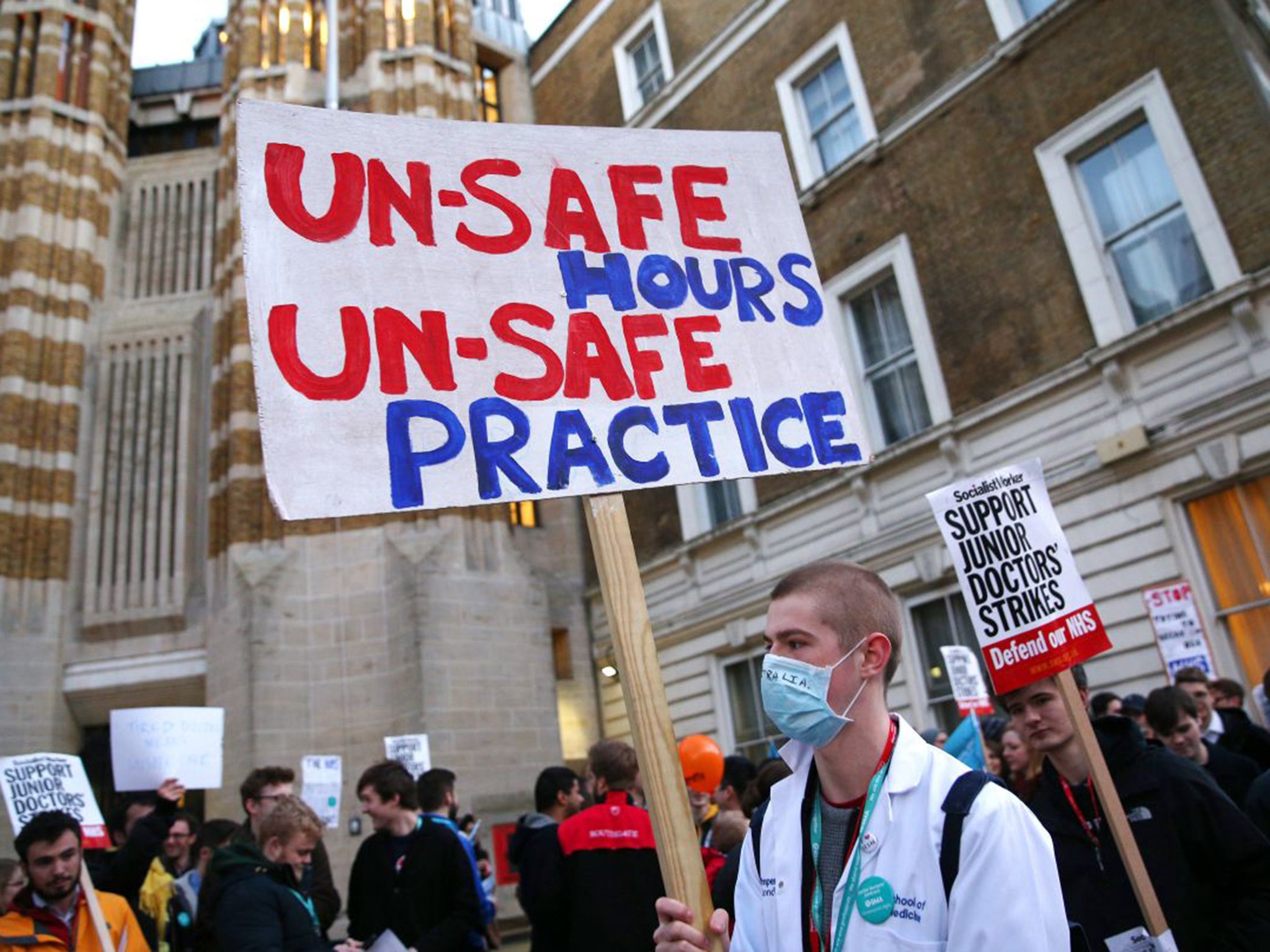Junior doctors furious after new 'example' rotas show them working three weekends in a row
Jeremy Hunt has claimed they would never have to work 'consecutive weekends' under the new contract

Your support helps us to tell the story
From reproductive rights to climate change to Big Tech, The Independent is on the ground when the story is developing. Whether it's investigating the financials of Elon Musk's pro-Trump PAC or producing our latest documentary, 'The A Word', which shines a light on the American women fighting for reproductive rights, we know how important it is to parse out the facts from the messaging.
At such a critical moment in US history, we need reporters on the ground. Your donation allows us to keep sending journalists to speak to both sides of the story.
The Independent is trusted by Americans across the entire political spectrum. And unlike many other quality news outlets, we choose not to lock Americans out of our reporting and analysis with paywalls. We believe quality journalism should be available to everyone, paid for by those who can afford it.
Your support makes all the difference.Junior doctors have reacted with fury after new example rotas show them working both Saturday and Sunday up to three weeks in a row despite a pledge by Jeremy Hunt to never force them to work consecutive weekends.
NHS Employers - which represents health trusts across England - has released 17 typical rotas junior doctors across all parts of the health service should expect to work when new contracts come into force in August.
The rotas cover a period of between four and 16 weeks with frequent shifts on both Saturdays and Sundays.
It shows junior doctors will be expected to work consecutive weekends or one weekend a fortnight.
Junior doctors have reacted with fury on Twitter branding Mr Hunt a “liar”:
Doctors also pointed to numerous errors on the example rotas - including one which suggested they would be expected to work for 48 hours straight on certain weekends.
Some medics suggested the example rotas seem to underestimate the number of hours doctors will be excepted to work prompting fears they will be asked to work even more weekends.
NHS Employers released a statement following the uproar saying current guidance stipulating junior doctors working consecutive weekends “should be avoided where possible” but there was no guarantee.
But this contradicts what Mr Hunt promised in his speech to Parliament where he controversially announced he would “unilaterally” impose a new contract on junior doctors last Thursday.
In his speech to MPs he said: “With the new contract, the maximum number of hours that can be worked in one week will be reduced from 91 to 72, the maximum number of consecutive nights doctors can be asked to work will be reduced from seven to four.
“The maximum number of consecutive long days will be reduced from seven to five; and no doctor will ever be rostered consecutive weekends”.
He also said those working "one in four or more Saturdays" will receive a "pay premium" of 30 per cent.
Mr Hunt choose to force the contract on junior doctors following a second 24-hour strike on 10 February after talks between the Department of Health and the British Medical Association broke down.
Junior doctors say the new contracts are “unsafe” for patients because it encourages NHS bosses to make them work longer hours.
The contract will change what is deemed “anti-social” working hours, meaning doctors will be expected to work later in the evening and on Saturdays without being paid overtime rates.
Applications for an industry certificate to practise medicine abroad spiked by over 1,000 per cent the day Mr Hunt announced the imposition.
In 2015, when the industrial dispute began, 8,627 certificates were issued to doctors – up from 4,925 in 2014 - which represents an annual increase of over £1bn worth of training leaving the NHS.
The Independent has contacted the Department of Health for comment.
Join our commenting forum
Join thought-provoking conversations, follow other Independent readers and see their replies
Comments